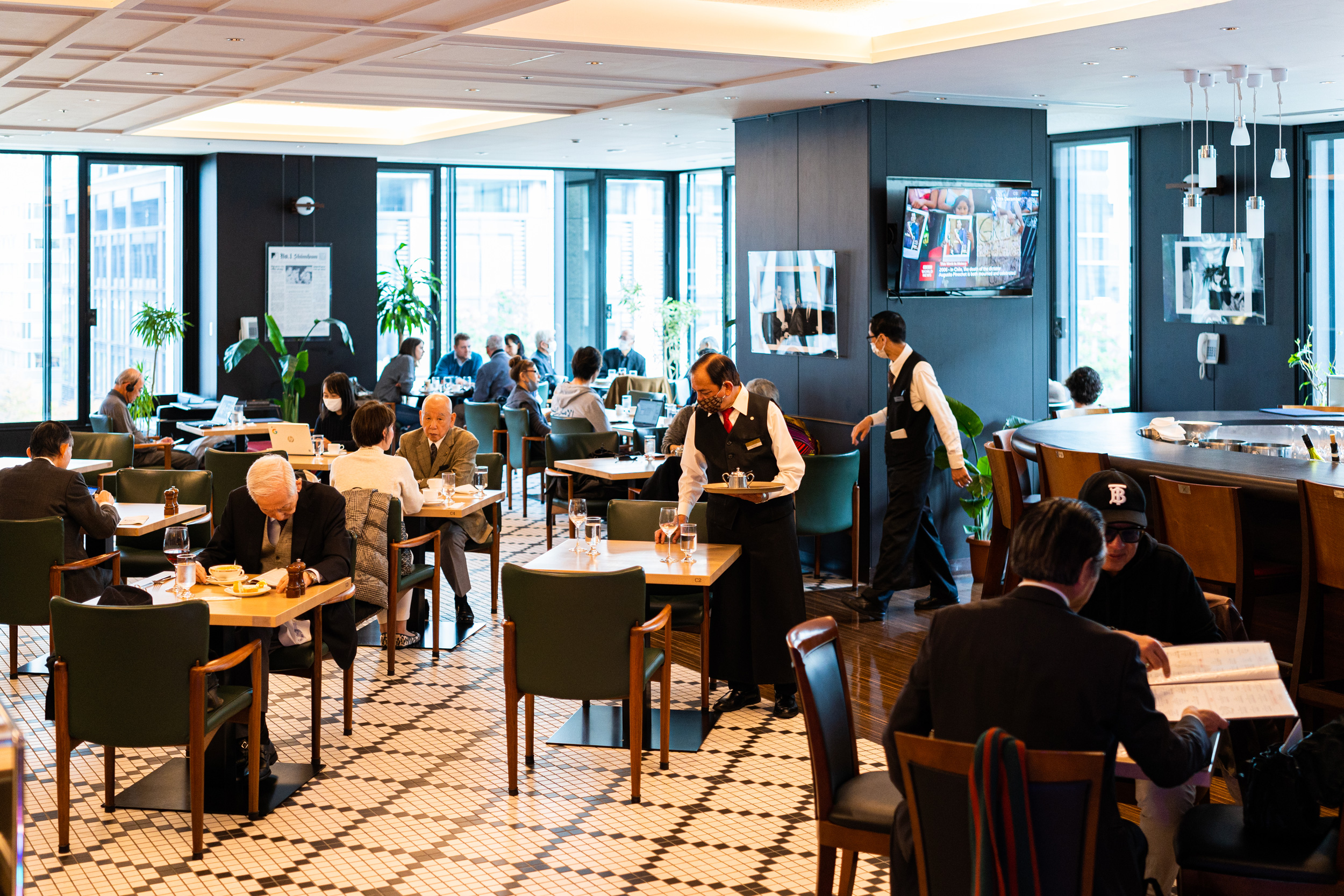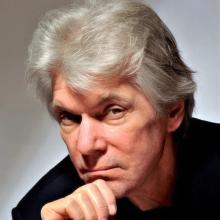Issue:
October 2025 | Club History Part 3
FCCJ politics can be colorful, but the club’s raison d’être is front and center as it marks its 80th year
This is the final installment of a three-part series


TOKYO — In the post-bubble era, the FCCJ was having problems. Japan had faded in prominence as China’s economic clout increased, while the corresponding rise of digital media, combined with global stock market meltdown in 2008, marked the end of the road for many FCCJ reporters. A number of organizations chose to downsize or close their Tokyo bureaus, including Time, Newsweek, U.S. News and World Report, the Chicago Tribune, the Los Angeles Times and the big TV networks CBS and NBC.
The club turned increasingly to associate memberships — a business model adopted in the 1950s to strengthen its financial foundations — to pay the bills. Associates — primarily Japanese businessmen — used the club as a watering hole to impress their friends and business acquaintances; some were elected to the FCCJ board of directors after election rules were changed. The club sometimes resembled an izakaya, given the number of Marunouchi salarymen there, including high-ranking executives accompanied by young women. But it remained an exotic place in some respects. The view from the 20th floor, with the Imperial Palace and the Peninsula Hotel on one side and the Ginza nightscape on the other, was one of the best in the world.
I would see Sam Jameson there from time to time. Tall, angular and convivial, he was the senior foreign correspondent in Japan. Sam kept me posted on the doings of his old friend Tsuneo Watanabe, the Yomiuri Shimbun head honcho, who had stopped speaking to me after my story in 1990 about the Tokyo Dome seating capacity — the Giants had claimed attendance was 56,000 for every game, while Tokyo Fire Department documents showed it was closer to 46,000. I had been Watanabe’s tutor as a university student but had not seen him for several years. According to Sam, Watanabe was now in a wheelchair and slowly losing his strength, but he still reported for work every day.
“Tsuneo has never forgiven you for that story about the Tokyo Dome capacity,” Sam told me one night. “It wasn’t so much publishing the truth that bothered him. It was that you published it in the arch rival Asahi Shimbun. He absolutely hated that paper and you did the worst possible thing by publishing it in the Asahi's weekly magazine Shukan Asahi.”
Watanabe had become a real power broker. He facilitated the appointment of Yasuo Fukuda as prime minister to replace conservative leader Shinzo Abe when he resigned during his first term as prime minister. Watanabe hosted private dinners for Abe when he returned to the Kantei in 2012, going on to become the longest-serving prime minister in Japanese history. Why Watanabe had time to still be angry with me was a mystery.
In 2012, Sam sued the FCCJ. The board had voted to fire 32 long-standing club employees as a cost-cutting measure. Sam thought it was a terrible thing to do. “They are like family,” he said. “It’s totally reprehensible. Unforgivable.”
Karel Van Wolferen joined him in the suit. So did Pio D’Emilia and UK journalist Anthony Rowley, as well as the well-known Tokyo businessman Rick Dyck and a number of others. They fought the decision in court for four years, in once a month one-hour appearances that were typical of the Japanese legal system. The government had not wanted the Japanese people to be as insanely litigious as Americans were, so they purposely kept the number of lawyers, judges and courtrooms to a bare minimum. Whereas for example, America has more than 1.2 million lawyers, there are only around 23,000 in Japan. However, this allows what few lawyers Japan does have to charge expensive fees.
I was approached to run for the FCCJ board in 2015 by senior members of the club. I had been a member since 1982 and had studiously avoided club politics, knowing how toxic and volatile it could get. But I felt I owed the club something, so I said yes and was elected, and soon became immersed in a role that turned out to be a 40-hour a week job. I had to take time away from a book I was writing, Tokyo Junkie, and suffered more anxiety than I ever did working with yakuza gangsters while researching Tokyo Underworld. It made me wonder how my illustrious predecessors, many of them Pulitzer Prize winners who had covered wars and a rapidly changing Asia, had ever had the time to devote so much energy to the club.
The board I was part of worked to persuade Sam and Karel and the other litigants to settle the suit out of court.
We also got bogged down in other issues. Japanese reporters who had become regular members, seemed to want to turn the FCCJ into a Japanese-style institution akin to the Japan National Press Club, which, to be frank, is a lackey of government and industry. They promoted rule changes, and managed to get them passed through block voting in General Membership Meetings, which had the effect of giving the Japanese government more control over our institution. This was anathema to Western journalists, of course. However, there were not enough fully fledged foreign correspondents there to participate in the club’s management. With journalism moving from print to digital, the club did not serve their professional needs as it once had. Reporters could write stories, take accompanying photos, and send it all in on their mobile phones.
At times, however, the FCCJ was still a vital alternative to the national press club, which toed the government line and blackballed controversial figures. At its new location in the Nijubashi Building in Marunouchi, the club is still standing, having survived a devastating pandemic. It continues to host press conferences by leading politicians, business leaders, celebrities and athletes, and a wide variety of musical and cultural events. It’s a place of great value. And the food is good.
Autographed copies of Robert Whiting’s books are available for purchase. These include Gamblers, Fraudsters, Dreamers & Spies, You Gotta Have Wa, Tokyo Underworld, The Meaning of Ichiro, Tokyo Junkie, and The Chrysanthemum and the Bat. If you are interested in buying a book, please email: robertwhitingsjapan@gmail.com

